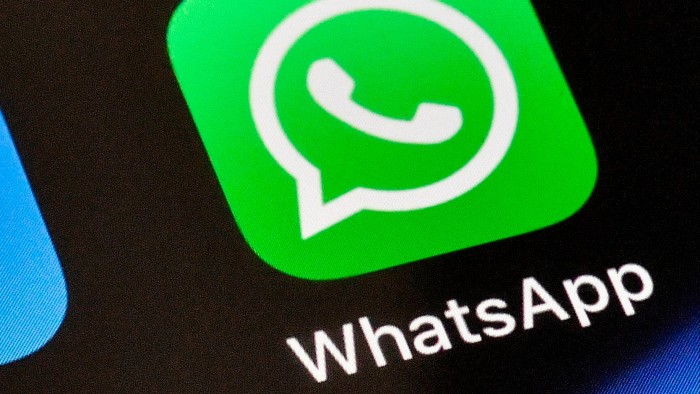Unlock the White House Watch newsletter for free
Your guide to what Trump’s second term means for Washington, business and the world
The US House of Representatives has warned staff members not to use Meta’s messaging platform WhatsApp due to privacy concerns.
The warning marks a blow to WhatsApp, whose $1.8tn parent Meta has long battled concerns that it has been lax with user data in its hunt for commercial growth and advertising revenue.
The House’s Chief Administrative Officer told staffers on Monday that WhatsApp had been deemed “a high-risk to users”, according to a copy of the memo seen by the Financial Times.
The email ordered staff not to download or keep the messaging service on any House laptop or mobile device from June 30, adding that anyone who had the application would be asked to remove it.
The decision was taken due to “a lack of transparency in how [WhatsApp] protects user data, absence of stored data encryption, and potential security risks involved with its use”, read the memo, which was first reported by Axios.
A spokesperson for Meta said that the company disagreed with the characterisation “in the strongest possible terms”.
The person added that WhatsApp messages were “end-to-end encrypted by default”, meaning that neither the company nor third parties could read them, adding that the platform offered “a higher level of security than most of the apps on the CAO’s approved list.”
Approved products in the US House of Representatives include Microsoft Teams, Signal, Apple’s iMessage and FaceTime, and Amazon-owned messaging service Wickr. Meta said WhatsApp, which has about 3bn users globally, is approved for official use in the Senate.
“Protecting the people’s House is our topmost priority, and we are always monitoring and analysing for potential cyber security risks that could endanger the data of House members and staff,” House chief administrative officer Catherine Szpindor said in a statement.
“We routinely review the list of House-authorised apps and will amend the list as deemed appropriate.”
Meta bought WhatsApp in 2014 for $19bn but co-founder Brian Acton left the company in 2017 following disagreements over user privacy and a lack of independence from the parent company.
Acton later co-founded rival Signal, which was at the centre of a furore in March after US officials, including vice-president JD Vance and defence secretary Pete Hegseth, accidentally shared details of forthcoming military strikes in an unofficial messaging group with a journalist.
Meta is currently fighting a legal challenge from the US Federal Trade Commission, which alleges the company retains an illegal monopoly for its purchase of WhatsApp and photo-sharing app Instagram.
The news comes as chief executive Mark Zuckerberg has made overtures to President Donald Trump, including multiple visits to the White House, in a bid to seek favourable outcomes for Meta.
Meta has also been increasingly working with the US military, widely interpreted as an attempt to court Trump. Meta last November shifted its policy to allow government agencies to use its AI models, called Llama, for military purposes. Last month it announced it was teaming up with Anduril to build mixed reality products for the US army.
Meanwhile, Meta’s chief technology officer Andrew Bosworth this month announced that he was accepting a commission as a lieutenant colonel in the US Army Reserve’s new Executive Innovation Corps.




